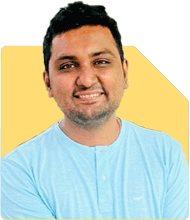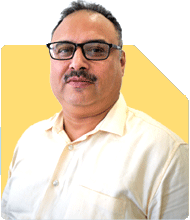Career Coach |37 Answers |Ask -Follow
Workplace Expert - Answered on Apr 24, 2024

As a 38-year-old marketing manager, I\'m feeling stuck and unsatisfied in my current position at a multinational company. After a decade there and climbing up the ranks, I feel like I\'ve reached a limit. I am thinking about quitting to finally follow my passion for entrepreneurship and launch my own marketing consulting business. Any advice on what to consider before making the switch?
1. Assess Your Passion and Skills: Envision your career shift as constructing a house. Just like a sturdy house needs a solid foundation, your venture requires a clear grasp of your passions and abilities. Reflect on what aspects of marketing fuel your excitement and where your strengths lie. This self-awareness will serve as the blueprint for your consulting business, ensuring it's firmly grounded.
2. Understand Your Market and Audience: Picture your target market as the community where you plan to build your house. Conduct thorough research to grasp the needs, preferences, and pain points of potential clients in your chosen niche. By identifying your ideal clients and tailoring your services to meet their specific challenges, you'll construct a business that resonates with the community.
3. Develop a Comprehensive Business Plan: Just as a successful construction project needs detailed blueprints, your business requires a well-thought-out plan. Outline your objectives, target market, competition analysis, pricing strategy, and marketing plan. This roadmap will guide your actions, ensuring every aspect of your business is strategically positioned for success.
4. Ensure Financial Readiness: Launching a business is similar to investing in a property - it demands financial commitment and entails risks. Assess your financial situation and determine the capital required to kickstart your venture. Explore funding options such as personal savings, loans, or investors. By budgeting wisely and managing your finances prudently, you'll lay a strong financial foundation for your business.
5. Cultivate Your Network: Just like a thriving neighborhood relies on strong community ties, your business success hinges on building a robust network. Connect with industry peers, potential clients, mentors, and fellow entrepreneurs. Engage in networking events, join professional associations, and utilize online platforms to expand your network and forge meaningful connections.
6. Start Small and Validate Your Concept: Instead of aiming for grandeur from the outset, consider commencing with a modest approach and iterating as you progress. Offer your services on a freelance basis or part-time to test the waters and gather feedback. This iterative method will help refine your offerings, address any shortcomings, and ensure your business evolves effectively over time.
7. Embrace the Learning Process: Building a successful business is akin to renovating an old house - it requires patience, perseverance, and a willingness to learn along the journey. Be prepared to encounter obstacles, make mistakes, and pivot when necessary. Each setback presents an opportunity for growth, reinforcing the foundation of your business for enduring success.
By visualizing your career transition as a construction project, with each step contributing to the development of a thriving business, you'll be well-equipped to navigate the entrepreneurial landscape with confidence and resilience.
You may like to see similar questions and answers below
Ashwini Dasgupta |68 Answers |Ask -Follow
Personality Development Expert, Career Coach - Answered on Jul 12, 2023
Abhishek Shah |76 Answers |Ask -Follow
HR Expert - Answered on Nov 17, 2023
Mayank Rautela |238 Answers |Ask -Follow
HR Expert - Answered on Nov 19, 2023
Baqar Iftikhar Naqvi |105 Answers |Ask -Follow
Start-up Mentor - Answered on Feb 21, 2024
Shekhar Kumar |117 Answers |Ask -Follow
Leadership, HR Expert - Answered on Apr 04, 2024
Sushil Sukhwani |333 Answers |Ask -Follow
Study Abroad Expert - Answered on May 04, 2024
Sushil Sukhwani |333 Answers |Ask -Follow
Study Abroad Expert - Answered on May 04, 2024
Ramalingam Kalirajan |1368 Answers |Ask -Follow
Mutual Funds, Financial Planning Expert - Answered on May 04, 2024
Ramalingam Kalirajan |1368 Answers |Ask -Follow
Mutual Funds, Financial Planning Expert - Answered on May 04, 2024
Ramalingam Kalirajan |1368 Answers |Ask -Follow
Mutual Funds, Financial Planning Expert - Answered on May 04, 2024
Ramalingam Kalirajan |1368 Answers |Ask -Follow
Mutual Funds, Financial Planning Expert - Answered on May 04, 2024
Ramalingam Kalirajan |1368 Answers |Ask -Follow
Mutual Funds, Financial Planning Expert - Answered on May 04, 2024
Ramalingam Kalirajan |1368 Answers |Ask -Follow
Mutual Funds, Financial Planning Expert - Answered on May 04, 2024
Ramalingam Kalirajan |1368 Answers |Ask -Follow
Mutual Funds, Financial Planning Expert - Answered on May 04, 2024
Ramalingam Kalirajan |1368 Answers |Ask -Follow
Mutual Funds, Financial Planning Expert - Answered on May 04, 2024



























